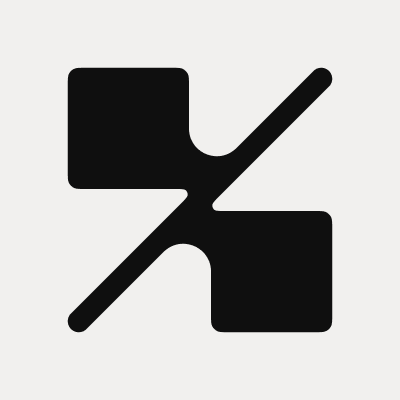Montenegro Justice Minister Andrej Milovic on Blockchain

Montenegro Justice Minister Andrej Milovic's Blockchain Initiatives
Digital advancements have consistently revolutionized traditional systems worldwide. In particular, blockchain technology is rapidly transforming the economic landscape, offering robustness, security, and transparency. Montenegro, a country with a growing interest in digital innovations, is no exception. Within this small yet dynamic nation, Justice Minister Andrej Milovic is silently spearheading a groundbreaking transformation. His initiatives in integrating blockchain systems into Montenegro's legal and financial infrastructures represent a potent embrace of the digital future.
The Cry for Digital Innovation
With its landscape picturesque and ambition zestful, Montenegro is still striving to climb the rungs of the technological ladder. Echoing the cries for innovation in governance and legal systems, Minister Milovic believes the solution lies within the digital realm, notably within blockchain technology.
Blockchain's decentralization, immutability, and transparency features offer more than just buzzwords; they present tangible solutions to systemic inefficiencies plaguing traditional infrastructures. By capitalizing on these advantages, Montenegro is poised to become a beacon for digital advancement, attracting blockchain enterprises globally.
Blockchain at the Heart of Legal Reforms
Minister Milovic envisions a judicial system where cases, evidence, and rulings are securely and transparently recorded on a blockchain. Such an implementation promises not only enhanced data security but also an immutable trail of records, ensuring no tampering or loss of critical information. Notably, this could significantly reduce cases of corruption and bureaucracy often associated with traditional paper trails.
Minister Milovic's blockchain-driven initiative reaches deeper than mere digital record-keeping; it extends to smart contracts—self-executing contracts with the terms of the agreement directly written into lines of code. Such contracts could automate several administrative processes within the judicial sphere, including issuance of rulings and enforcement of legal obligations, thereby streamlining operations and optimizing resource allocation.
Financial Sector: A Tectonic Shift
The frictionless and secure nature of blockchain is also finding its ground in Montenegro’s financial industry. As financial transactions become increasingly digital, blockchain offers a blueprint for secure, swift, and transparent transactions. Minister Milovic’s endorsement of blockchain within this sector symbolizes a strategic move to bolster economic growth and security.
Part of the anticipated outcome is the facilitation of cryptocurrency operations in Montenegro, empowering citizens and businesses with new ways to barter and transact. Minister Milovic's push for regulatory frameworks that embrace digital currencies could also attract budding crypto firms, eager for a friendly business environment.
Thus, integrating blockchain within Montenegro's financial ecosystem could ignite positive ripple effects, enhancing everything from secure transactions to investment inflow, echoing through consumer trust and economic stability.
Challenges and the Road Ahead
Of course, this digital metamorphosis is not devoid of challenges. Implementing blockchain in public sectors like justice and finance requires overcoming significant technical, regulatory, and societal obstacles. These include ensuring wide-scale understanding and adoption of technology, establishing robust legal frameworks, and tackling cybersecurity concerns.
Nevertheless, Minister Milovic’s strategy is holistic, involving public-private collaborations and global partnerships—paving the way for smoother transitions into blockchain-based systems. Education campaigns aimed at increasing public awareness and understanding of blockchain are already in the pipeline.
Montenegro: A Growing Blockchain Hub
Minister Milovic's vision dovetails seamlessly with Montenegro’s broader aspirations to become a blockchain and fintech hub. Encouraging blockchain-based startups and nurturing an environment rich in digital innovation aligns with this ambition. As a result, Montenegro not only welcomes homegrown entrepreneurs; it opens its borders to international blockchain enterprises eager for conducive operational grounds.
Additionally, partnerships with blockchain pioneers and educational institutions bolster Montenegro’s standing on the global stage. Encouraging blockchain education creates a skilled workforce ready to meet tomorrow's digital demands.
Cryptocurrency Adoption and Regulatory Framework
On the regulatory front, Montenegro is actively working on frameworks to ensure secure and legit operations for blockchain enterprises. Minister Milovic's efforts to draft regulations that protect investors while encouraging innovation indicate a prudent approach, balancing safety concerns with the seismic developments in digital finance.
Bitget Exchange, for example, has been on the radar of many Montenegrin crypto enthusiasts eager to delve into cryptocurrency trading. The push for regulatory clarity by Minister Milovic underpins the confidence to engage robustly in digital currency platforms like Bitget.
Final Thoughts
In a world rapidly embracing digitalization, Minister Andrej Milovic’s blockchain initiatives in Montenegro stand as testament to foresight and dynamism in governance. Here lies more than just policy reforms; it is a reimagining of the systems propelling Montenegro into a digital future. As blockchain technology becomes intricately woven into the fabric of daily operations, Montenegro positions itself at the forefront of a burgeoning digital revolution.
Embracing this transformative technology could very well usher in a new era of prosperity and innovation for Montenegro, marking it as a central pivot in the tech-driven landscape of tomorrow.
Want to get cryptocurrency instantly?
Latest articles
See more























